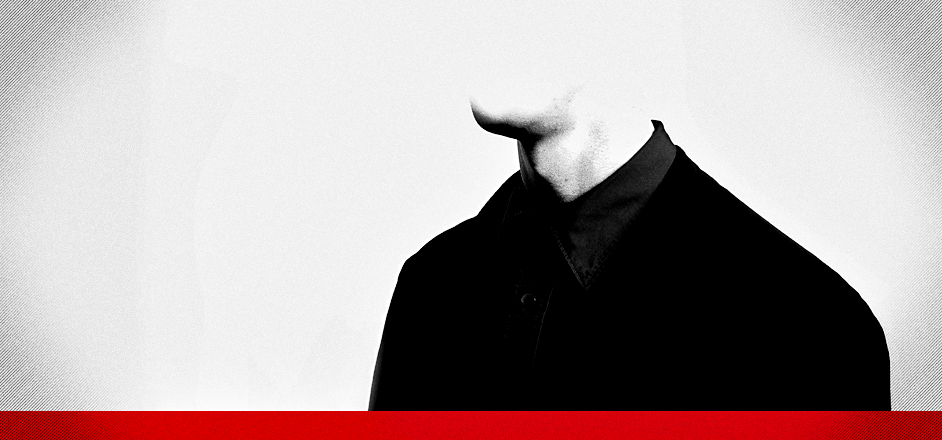A book most American high schoolers begrudgingly read in English class is once again the center of attention. Not just thanks to current politics, but because "1984" has been adapted as a successful play in a wide-eyed way to experience George Orwell’s dystopic prophecy. The Washington Post wrote, “audiences of Broadway’s graphic portrayal of ‘1984’ faint and vomit.” It’s not far from the truth given its violent nature; although, it fails to mention the standing ovation that follows.
Here’s the narrative breakdown of the book: In 1984 ("the future"), Winston Smith works as a propagandist for the Ministry of Truth in an authoritarian society ruled by the omnipotent Big Brother. Language has been refined into Newspeak: a simplified lexicon designed to limit citizens ability to think (Twitter much?).
As the story progresses, Winston has several epiphanies, falls in love with a woman named Julia, and vows to overthrow Big Brother in any way he can. Unfortunately for him, Big Brother knows all — can’t escape those CCTV cameras. He’s caught, tortured and broken until he fills his heart with love for his oppressor; that’s how my parents raised me.

At its core, "1984" is one of the most alarming books ever written. Hence why its ripple can be felt throughout our entire culture: Radiohead’s "2+2=5," Apple’s hammer-flinging Super Bowl ad, the reality TV show Big Brother — what, you didn’t put those two together? You’ve probably seen it referenced in other media, art, or literature and not even realized it. It’s permeated itself as an underlying reminder and continues to do so through the play adapted by Robert Icke and Duncan Macmillan.
Like with the best television and movies in recent years, the thoughts running through my head as I sat and watched the play unfold were, “I can’t believe they got away with this; children should not see this.” (Plenty of well-meaning seniors kept their gaze averted to the floor.)
It’s the same thought many have watching the new season of Twin Peaks (thanks for giving David Lynch carte blanche Showtime!): jaws unhinge and stick to the gray gum on the floor as you remind yourself, “This is only a play.”
Winston Smith is an unreliable narrator. And as his mind collapses so too does the stage’s decor. While pulsating lights and mechanized sound leaves you equally disoriented and vulnerable to the confusion and rage boiling in the newly awakened rebel’s mind. Then you follow the tragedy of his epiphany as his entire worldview collapses. No wonder people are edgy by the time the play ends. It’s a ripe setting to instill the mottos "War is peace," "Freedom is slavery," and "Ignorance is strength."
Without spoiling the entirety of it — as you really ought to see it yourself if you’re in the NYC area — here’s one resonating moment. As Winston is shackled and brainwashed, his torturer remarks, "The people are not going to revolt. They will not look up from their screens long enough to notice what's really happening." While the line resonated with the audience — nervous chuckles up and down the aisles — it seems out of place in Orwell’s "1984." But rather, points to Aldous Huxley’s own dystopian novel "Brave New World."
In the ominous book "Amusing Ourselves to Death," Neil Postman writes, “ … As Huxley remarked in 'Brave New World Revisited,' the civil libertarians and rationalists who are ever on the alert to oppose tyranny ‘failed to take into account man's almost infinite appetite for distractions.’ In '1984,' Orwell added, people are controlled by inflicting pain. In 'Brave New World,' they are controlled by inflicting pleasure. In short, Orwell feared that what we fear will ruin us. Huxley feared that what we desire will ruin us.” It is our fleeting desires which paves the road to tyranny (“Let’s check Instagram!; O wow, she had a baby.”). Not fear.

Still, that hasn’t stopped "1984" from becoming a bestseller once again, with sales increasing 10,000 percent since Donald Trump’s inauguration, in part thanks to Kellyanne Conway’s “alternative facts” and “FAKE NEWS.” Although, you would think unstoppable mass surveillance would have been the trigger.
Luckily, our world is not an all-powerful dictatorship yet (as far as we can tell). We still have shitposting, memes, Chuck Tingle, a THC-infused lubricant for women, and a horde of bloggers ever eager to condemn the governments of the world. But, that doesn’t mean we shouldn’t be vigilant, that Orwell was wrong. Tyranny is always waiting at the fringes of society, biding its time, waiting for the right moment to strike, ever eager to perpetuate its power.
One way to notice it’s ooze is when any society seeks to suppress "1984" — or any book for that matter; that’s a society in the fast lane to hell — even if it’s Marquis de Sade’s book "Justine." Still, maybe you don’t need suppression. Maybe you can control people’s minds through endless entertainment as Huxley feared. It would be easier to believe it if the government could figure out how to slap a name tag over its heart that reads, “I’m competent.” Then again, maybe that’s the biggest trick of all.
As the play ends, there’s a question that lingers, “How do we know Big Brother isn’t watching us right now?” We don’t. Or, do we?
Heeeeey NSA!



Leave a Reply